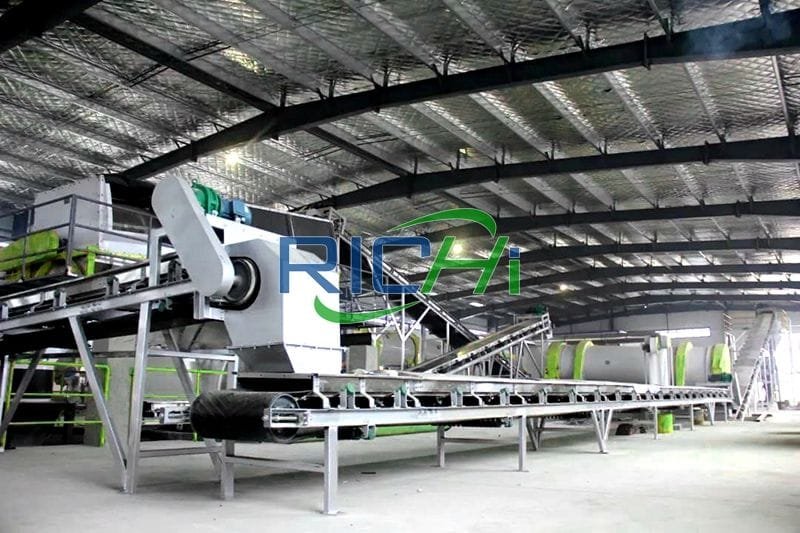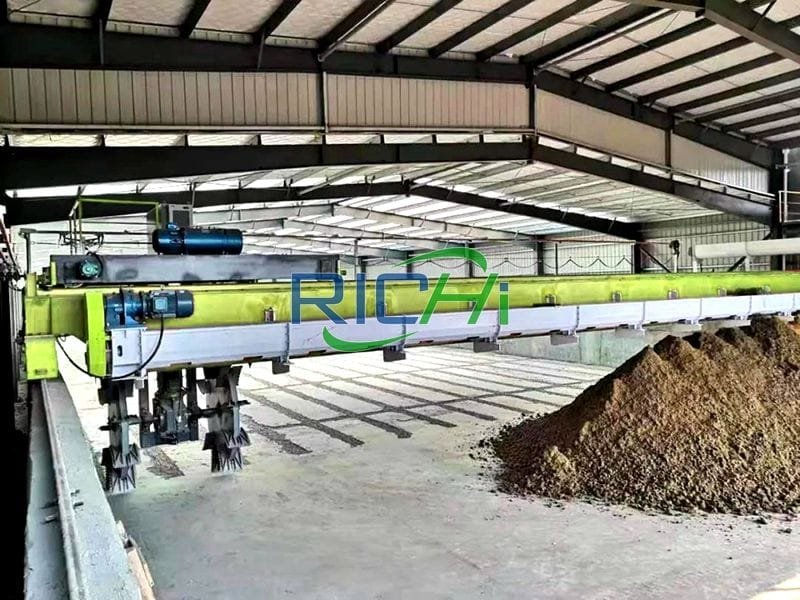Thailand, with its thriving agricultural sector and increasing emphasis on sustainable farming, offers a promising environment for establishing organic fertilizer pellet production line in Thailand. This article delves into the wide array of local raw materials available in Thailand that can be harnessed for organic fertilizer production, showcasing the country’s rich natural resources and agricultural byproducts.
Agricultural Waste
Rice Husks and Straw
As one of the top rice producers globally, Thailand generates vast quantities of rice husks and straw. These byproducts are ideal for organic fertilizer production due to their:
- High silica content, which enhances soil structure
- Abundant supply throughout the year
- Contribution to increasing soil carbon content
Sugarcane Bagasse
Thailand’s significant sugarcane production results in a substantial amount of sugarcane bagasse, the fibrous residue left after juice extraction. Bagasse is highly beneficial for organic fertilizer production because of its:
- High organic matter content
- Capacity to improve soil water retention
- Positive impact on soil microbial activity

Cassava Waste
Being a leading cassava producer, Thailand generates various cassava processing wastes that are valuable for fertilizer production, such as:
- Cassava peel
- Cassava pulp
- Cassava wastewater
These materials are rich in organic matter and nutrients, making them excellent components in organic fertilizer formulations.
Animal Manure
Chicken Manure
Thailand’s poultry industry produces large quantities of chicken manure, which is:
- Rich in nitrogen, phosphorus, and potassium
- Easily accessible near poultry farms
- Effective in boosting soil fertility
Swine Manure
The pig farming industry in Thailand generates swine manure, which can be composted and used in organic fertilizer production. Its benefits include:
- High nutrient content
- Enhancement of soil organic matter
- Improvement of soil microbial activity
Cattle Manure
Manure from dairy and beef cattle farms in Thailand is valuable for organic fertilizer due to its:
- Balanced nutrient profile
- Contribution to soil structure enhancement
- Slow-release nutrient properties
Fishery and Aquaculture Waste
Fish Waste
Thailand’s extensive fishing industry produces fish waste that can be processed into high-quality organic fertilizer. Fish waste provides:
- High levels of nitrogen and phosphorus
- Trace elements essential for plant growth
- Rapid nutrient release
Shrimp Pond Sediment
The shrimp farming industry in Thailand generates pond sediment, which can be utilized in fertilizer production, offering:
- Rich organic matter content
- Essential nutrients for plant growth
- Improvement of soil physical properties
Food Processing Waste
Fruit and Vegetable Waste
Thailand’s food processing sector produces significant amounts of fruit and vegetable waste, suitable for composting and organic fertilizer production. These wastes contribute:
- Diverse nutrient profiles
- Enhancement of soil organic matter
- Improvement of soil microbial diversity
Palm Oil Mill Effluent (POME)
The palm oil industry in Thailand generates POME, which, after treatment, can be used as a nutrient-rich component in organic fertilizers. POME offers:
- High organic matter content
- Essential nutrients for plants
- Improved soil water retention capacity
Forest and Wood Industry Byproducts
Sawdust and Wood Chips
Thailand’s forestry and wood processing industries produce sawdust and wood chips, which can be composted and used in organic fertilizer production. These materials help:
- Improve soil structure
- Enhance soil water retention
- Provide a slow-release carbon source for soil microorganisms
Bark and Leaf Litter
Collected bark and leaf litter from forestry operations can be processed into organic fertilizer, providing:
- Diverse nutrient content
- Enhancement of soil organic matter
- Improvement of soil biodiversity
Urban Organic Waste
Municipal Solid Waste (Organic Fraction)
Properly sorted and composted organic fractions of municipal solid waste can serve as valuable inputs for organic fertilizer production, offering:
- Diverse nutrient content
- Reduction of waste sent to landfills
- Support for circular economy principles
Green Waste from Parks and Gardens
Collected green waste from urban areas can be composted and used in fertilizer production, providing:
- Rich organic matter content
- Improvement of soil structure
- Enhancement of soil water retention capacity
Considerations for Raw Material Selection
When selecting raw materials for an organic fertilizer pellet production line in Thailand, several factors should be considered:
Availability and Supply Chain
- Assess the availability and consistency of supply for each raw material
- Consider seasonal variations in agricultural residues
- Evaluate transportation logistics for moving raw materials to the production facility
Nutrient Content and Quality
- Analyze the nutrient profiles of different materials
- Consider the balance of macro and micronutrients
- Assess potential contaminants or undesirable substances
Processing Requirements
- Evaluate the need for pre-treatment processes such as grinding, drying, or composting
- Consider the compatibility of different materials in the pelletizing process
- Assess the energy requirements for processing various raw materials
Regulatory Compliance
- Ensure adherence to Thai organic farming standards and regulations
- Consider international organic certification requirements for export markets
- Comply with environmental regulations regarding waste processing and fertilizer production
Market Demand
- Assess the nutrient requirements of major crops in Thailand
- Consider the preferences of organic farmers and export markets
- Evaluate the potential for developing specialized fertilizer blends
Conclusion
Thailand is endowed with a diverse array of raw materials suitable for organic fertilizer pellet production, reflecting its rich agricultural heritage and natural resources. From agricultural residues and animal manures to food processing waste and urban organic materials, the options are both plentiful and varied, positioning Thailand as a strong contender in the growing organic fertilizer market.
Success in this industry lies in the careful selection and combination of raw materials to produce high-quality, balanced organic fertilizer pellets that meet farmers’ needs and adhere to organic farming standards. By leveraging its natural resources and agricultural byproducts, Thailand can build a robust and sustainable organic fertilizer industry.
As the demand for organic products continues to rise both domestically and globally, Thailand’s organic fertilizer pellet production sector has the potential to not only support local organic farming but also emerge as a significant player in the international market. Effectively utilizing these diverse organic resources through pellet production can contribute significantly to Thailand’s agricultural sustainability, soil health improvement, and overall economic growth in the organic sector.
For details please contact: pellet mill
WhatsApp:86 138 3838 9622
Email:enquiry@richipelletmachine.com
